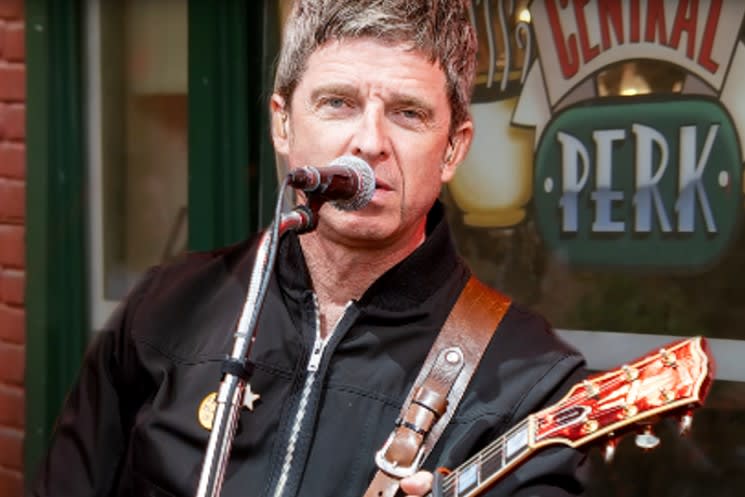If you need a scapegoat, Friends will be there for you. While the beloved sitcom has notably not aged the most gracefully, Noel Gallagher is suggesting that it may have singlehandedly taken the cultural valuation of music down a peg.
While promoting his latest High Flying Birds album Council Skies, the former Oasis geezer formulated a theory for where art all went wrong, attributing Friends with having popularized coffee shop culture and contributing to people's willingness to pay inflated amounts for food and drink — but not music.
"Since the rise of the coffee shop, culture has disappeared," he was quoted by The Daily Star as having said [via Music News], drawing renewed attention to a resurfaced NPR interview where he previously expressed this sentiment. "People are horrified that they have to pay for music! But $20 for two coffees, oh, absolutely. I haven't got the brain capacity to process this."
He continued back in 2018, "I blame Friends [for] the rise of the coffee shop. Sitting around in sweaters drinking overpriced coffee and talking about nonsense."
NPR's Talia Schlanger pointed out at the time that the resistance towards shelling out money for music came after coffee shops became commonplace. "Maybe it's that they got used to spending a lot on commodities that feel like culture — like coffee — and then changed their financial priorities," she said. "Or maybe it's that, all of a sudden, music was free."
An interesting premise, although it's difficult to pinpoint exactly when people became more willing to spend on libations (especially in social settings) than music, which is maybe considered by some to be a more solitary activity. Now, in times of high-flying inflation on literally everything (including concert tickets), as well as particularly abysmal streaming payouts for musicians, many are forced to make this choice.
Maybe it's a bit more capitalism than just Friends, but it's fair to say that both are problematic.
While promoting his latest High Flying Birds album Council Skies, the former Oasis geezer formulated a theory for where art all went wrong, attributing Friends with having popularized coffee shop culture and contributing to people's willingness to pay inflated amounts for food and drink — but not music.
"Since the rise of the coffee shop, culture has disappeared," he was quoted by The Daily Star as having said [via Music News], drawing renewed attention to a resurfaced NPR interview where he previously expressed this sentiment. "People are horrified that they have to pay for music! But $20 for two coffees, oh, absolutely. I haven't got the brain capacity to process this."
He continued back in 2018, "I blame Friends [for] the rise of the coffee shop. Sitting around in sweaters drinking overpriced coffee and talking about nonsense."
NPR's Talia Schlanger pointed out at the time that the resistance towards shelling out money for music came after coffee shops became commonplace. "Maybe it's that they got used to spending a lot on commodities that feel like culture — like coffee — and then changed their financial priorities," she said. "Or maybe it's that, all of a sudden, music was free."
An interesting premise, although it's difficult to pinpoint exactly when people became more willing to spend on libations (especially in social settings) than music, which is maybe considered by some to be a more solitary activity. Now, in times of high-flying inflation on literally everything (including concert tickets), as well as particularly abysmal streaming payouts for musicians, many are forced to make this choice.
Maybe it's a bit more capitalism than just Friends, but it's fair to say that both are problematic.
